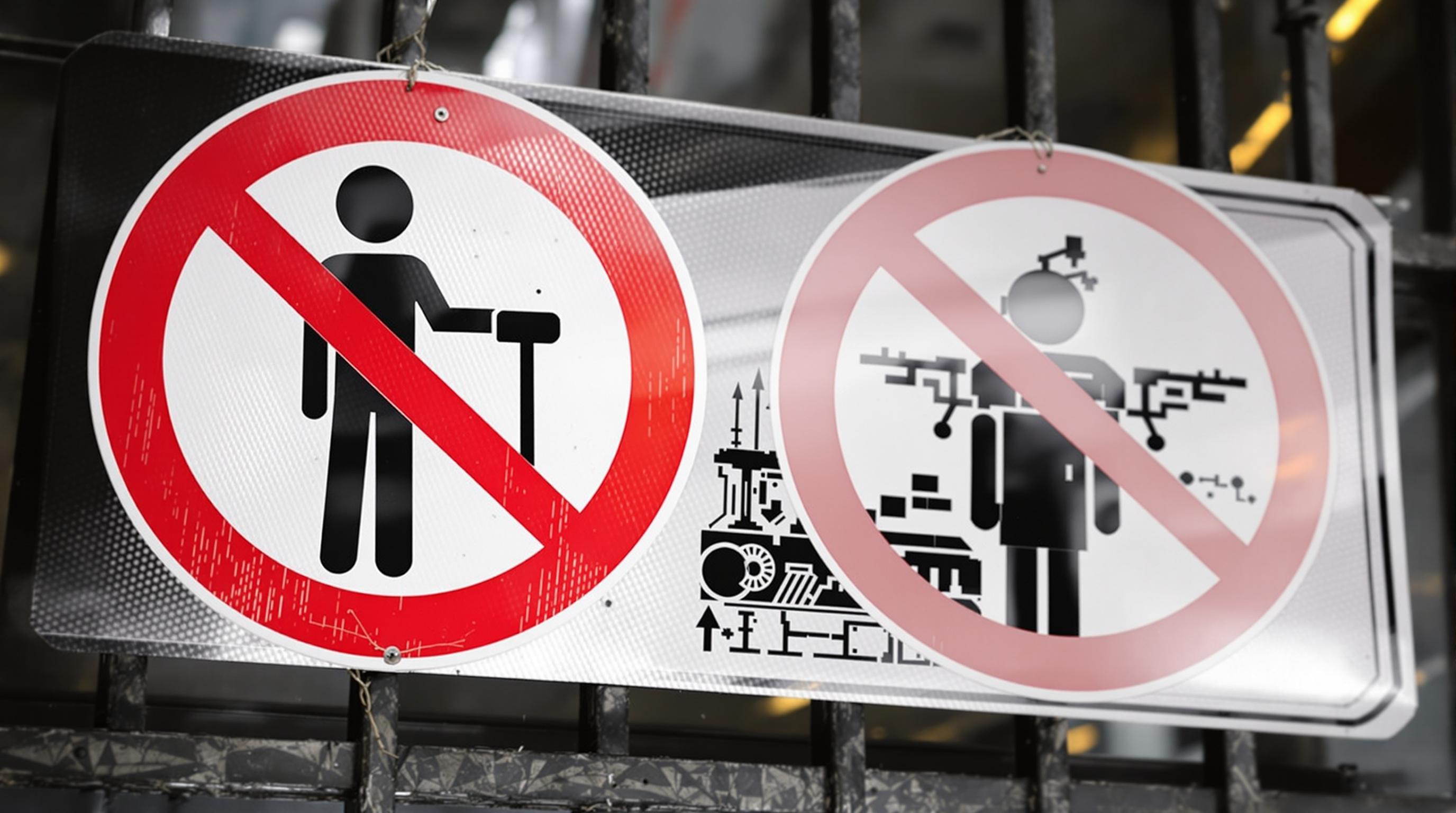
EU AI Act
The European Union Artificial Intelligence Act (EU AI Act) is the world’s first comprehensive regulatory framework designed to manage the risks and harness the ...

The EU AI Act bans social scoring by governments, manipulative AI, real-time biometric identification, and subliminal AI to ensure ethical, fair, and human-centered AI systems.
The EU AI Act identifies specific artificial intelligence (AI) practices that it prohibits due to conflicts with European values, ethics, and fundamental rights. Among these are the use of AI for social scoring by governments and manipulative AI systems. Article 5 of the Act describes these bans to ensure AI is developed, implemented, and used in a responsible and ethical manner.
Social scoring involves assessing or categorizing individuals based on their social behavior, personal traits, or other data collected over time. The EU AI Act specifically bans such systems when used by public authorities or governments. This ban addresses the risks such practices pose to fundamental rights, including privacy, equality, and freedom from discrimination.
Social scoring systems, like those implemented in some non-EU countries, raise concerns about mass surveillance, breaches of privacy, and increased social inequality. The EU bans these systems to protect individual rights and promote fairness across society.
The EU AI Act also prohibits AI systems that manipulate people’s behavior without their awareness. These techniques take advantage of vulnerabilities such as age, disability, or financial situations to influence decisions or actions in a harmful way.
AI systems that use subliminal techniques to influence individuals without their conscious awareness are banned. These methods work by embedding subtle, undetectable cues in media or advertisements to influence actions, such as purchasing decisions or voting. The EU Act prohibits these systems when they result in significant harm to individuals or groups.
AI technologies that exploit the vulnerabilities of certain populations, such as children, older adults, or those facing economic challenges, are also banned. For example, ads targeting children with manipulative content promoting unhealthy products fall under this category.
Manipulative AI raises both ethical and real-world concerns. For example, the Cambridge Analytica case demonstrated how AI-driven psychological profiling was used to influence voter behavior. The EU AI Act prohibits such practices to safeguard individuals’ ability to make autonomous decisions.
The bans on social scoring and manipulative AI in the EU AI Act highlight the EU’s focus on creating safe, ethical, and human-centered AI systems. These prohibitions are in place to protect individuals from harm, uphold fundamental rights, and prevent the misuse of advanced technologies. By addressing these issues, the EU establishes itself as a global leader in responsible AI regulation.
The EU AI Act sets strict limitations on artificial intelligence technologies that could violate basic rights or compromise ethical principles. Among these regulations are those addressing real-time remote biometric identification and subliminal AI methods, as both present serious ethical, security, and privacy risks.
Real-time remote biometric identification systems use unique biometric data—like facial features, fingerprints, or iris patterns—to identify individuals, often in public spaces. These technologies are a key focus of the EU AI Act due to the risks they pose to privacy, personal freedom, and autonomy.
Real-time biometric technologies create risks of mass surveillance, misuse by authorities, and erosion of privacy. The EU AI Act’s restrictions aim to balance public safety with individual rights, ensuring the technology cannot be misused for oppressive or discriminatory purposes.
Subliminal AI systems influence people’s decisions or behavior without their conscious awareness. These systems work by embedding subtle and undetectable cues in media or interactions, which can alter decisions in ways people wouldn’t normally choose.
The Act also bans AI systems that exploit vulnerabilities related to age, disability, or socio-economic status if they cause harmful distortions in behavior. For example:
Subliminal AI conflicts with ethical principles of transparency and autonomy. Its potential misuse in political, commercial, and social settings underscores the need for strong regulation. The EU AI Act’s ban on these systems reflects a commitment to protecting individuals from hidden manipulations and ensuring that AI respects human dignity.
The restrictions on real-time biometric identification and subliminal AI show the EU’s focus on ethical and human-centered AI. By regulating these high-risk technologies, the EU AI Act seeks to protect fundamental rights, build trust in AI, and set a global standard for responsible AI development. These regulations ensure AI systems are used in ways that align with societal values and prevent harm or inequality.
The EU AI Act prohibits the use of AI for social scoring by governments, manipulative AI techniques (including subliminal manipulation), real-time remote biometric identification in public spaces (with strict exceptions), and systems exploiting vulnerabilities of specific groups such as children or the elderly.
Social scoring by governments is banned due to its risks to privacy, equality, and freedom from discrimination. Such systems can lead to unjustified treatment and disproportionate consequences for individuals or groups based on unrelated or excessive data.
Yes, exceptions exist for law enforcement in cases such as finding victims of serious crimes, preventing immediate threats to life or public safety, and identifying suspects of severe crimes, but only under strict safeguards and GDPR compliance.
Manipulative or subliminal AI refers to systems that influence individuals’ behavior without their conscious awareness, often exploiting vulnerabilities. These practices are banned to protect autonomy, prevent harm, and uphold ethical standards in AI.
By prohibiting high-risk practices like social scoring, manipulative AI, and unregulated biometric identification, the EU AI Act aims to protect fundamental rights, ensure privacy and fairness, and set a global standard for responsible AI development.
Viktor Zeman is a co-owner of QualityUnit. Even after 20 years of leading the company, he remains primarily a software engineer, specializing in AI, programmatic SEO, and backend development. He has contributed to numerous projects, including LiveAgent, PostAffiliatePro, FlowHunt, UrlsLab, and many others.

Start building AI solutions that align with the latest EU regulations. Discover FlowHunt's tools for compliant, ethical, and innovative AI development.

The European Union Artificial Intelligence Act (EU AI Act) is the world’s first comprehensive regulatory framework designed to manage the risks and harness the ...

Explore the EU's AI Act, the world's first comprehensive AI regulation. Learn how it classifies AI systems by risk, establishes governance, and sets global stan...

Explore the EU AI Act’s tiered penalty framework, with fines up to €35 million or 7% of global turnover for severe violations including manipulation, exploitati...